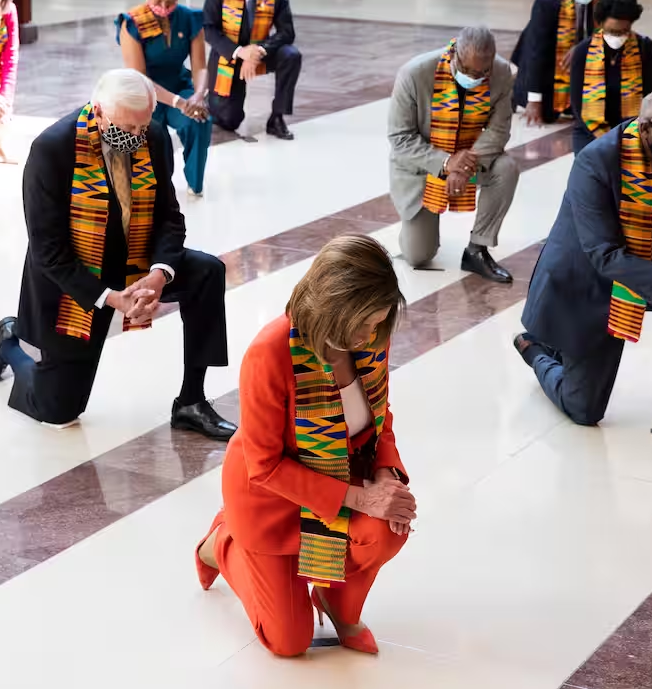The American Islamic organization, the Council on American-Islamic Relations (CAIR- Supports Terrorist groups such as Hamas, PLO, Muslim Brotherhood and more), vehemently criticizes former House Speaker Nancy Pelosi for her recent assertions suggesting a dubious connection between pro-Palestinian protesters at President Biden’s events and Russia. CAIR characterizes Pelosi’s comments as “delusional” and indicative of an “authoritarian” tone, adding to the ongoing debate surrounding the Israeli-Palestinian conflict.
Pelosi’s controversial remarks were made during a CNN appearance, where she not only tied calls for a cease-fire between Israel and Hamas to “Mr. Putin’s message” but also advocated for an FBI investigation into the funding of these protests. Despite acknowledging the frequent presence of demonstrators near her residence, Pelosi underscored the need to address the suffering in Gaza, particularly among vulnerable groups like women and children.
It is noteworthy that members of the public are increasingly pointing out that, since 2020, similar groups have gained confidence, encouraged by figures like Pelosi and other influential individuals within the Democratic Party. This growing boldness has fueled speculation among observers that it was only a matter of time before these groups would turn on Pelosi and other political pundits, highlighting the complex dynamics at play in contemporary political discourse. As the debate continues, the role of various groups in shaping public opinion and influencing political narratives remains a central point of contention.
Over an extended period, Nancy has consistently advocated for public protests, while figures like Vice President Kamala Harris , Rep Maxine Waters, and Rep Ayanna Pressley have been making provocative suggestions, encouraging confrontations with political rivals and endorsing aggressive tactics. Now, the individuals who were responsible for the destruction of businesses across the United States, resulting in millions of dollars worth of damage, have shifted their focus towards the Democratic party.

The question arises: will this development serve as a turning point for the Democratic party, prompting a reflection on the potential repercussions of aligning with such radical elements? Is there a possibility that the party might reconsider its stance, recognizing the danger in empowering extremists? Alternatively, will the Democratic party choose to intensify its support for those who are willing to dismantle the fabric of the country for the sake of misguided ideological beliefs? These considerations pose a critical dilemma for the Democratic party as it navigates the complex landscape of political influence and ideological allegiance.


